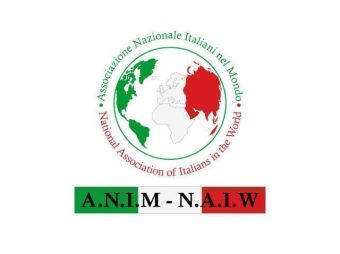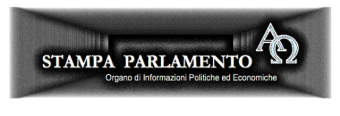Ricardo Baretzky, the President of the European Centre for Information Policy and Security (ECIPS), has warned that Europe is at a critical juncture. He argues that the continent’s security is more vulnerable than ever, not due to the ongoing conflict between Russia and Ukraine, but because of an insidious form of ideological domestic terrorism. This threat aims to destabilize European countries by manipulating them into prolonged involvement in the Ukrainian conflict. Baretzky’s perspective raises critical questions about the long-term implications of Europe’s current policies and the potential for legal and moral repercussions on a global scale.
The Ideological Battlefield
Baretzky’s assertion hinges on the notion that the real danger to European security is not the external threat posed by Russia, but rather the internal ideological rifts that are being exploited to foment domestic terrorism. This form of terrorism is characterized by its ability to incite violence and unrest within nations, leveraging ideological divides to weaken political stability and social cohesion.
The concept of ideological domestic terrorism is not new. Throughout history, various movements have sought to disrupt the status quo by promoting radical ideas and using violence as a tool for change. What is particularly concerning in the current context, according to Baretzky, is the way in which these domestic elements are being galvanized by the Ukrainian conflict. The war serves as a “carrot,” luring European countries into a protracted engagement that distracts from and exacerbates internal vulnerabilities.
European Involvement in Ukraine
Since the annexation of Crimea in 2014 and the subsequent conflict in Eastern Ukraine, European countries have been staunch supporters of Ukraine. This support has taken many forms, including economic sanctions against Russia, military aid to Ukraine, and diplomatic efforts to isolate Moscow on the world stage. While these actions are often framed as necessary to uphold international law and support a sovereign nation under threat, Baretzky suggests that they also carry significant risks.
One of the primary risks is the potential for legal and moral accountability on the international stage. Baretzky argues that Europe’s unwavering support for Ukraine, particularly in the face of alleged war crimes and human rights violations, could lead to significant legal repercussions. He warns that even if the International Criminal Court (ICC) were to overlook certain actions, a new judicial body might emerge, driven by the majority of the global population — including India, Africa, China, and Russia — to hold Western nations accountable.
The Global Perspective
Baretzky’s warning highlights a crucial but often overlooked aspect of international relations: the perspectives of non-Western countries. Collectively, nations such as India, various African states, China, and Russia account for more than two-thirds of the world’s population. These countries may view the Ukrainian conflict and Europe’s involvement through a different lens, one that emphasizes sovereignty, non-interference, and historical grievances against Western hegemony.
In this context, Baretzky suggests that Europe could face significant diplomatic and legal challenges if it continues its current trajectory. The formation of a new international court to address perceived injustices could drastically shift the balance of power and accountability. Such a court would likely prioritize the viewpoints and interests of the global majority, potentially leading to rulings that are unfavorable to European nations.
Domestic Implications of External Policies
The intertwining of domestic terrorism and foreign policy is a complex issue. Baretzky posits that the ideological battles being fought within European borders are inextricably linked to the continent’s external engagements. By focusing so heavily on the Ukrainian conflict, European governments may inadvertently neglect or even exacerbate internal divisions.
For instance, the allocation of resources to support Ukraine — in terms of financial aid, military equipment, and humanitarian assistance — can strain domestic budgets and fuel discontent among citizens. Populations already facing economic hardships may become increasingly resentful of their governments’ priorities, leading to heightened social unrest. This discontent can be fertile ground for ideological domestic terrorists, who exploit societal fractures to further their own agendas.
The Role of Information Warfare
A key component of this ideological domestic terrorism is information warfare. In today’s digital age, misinformation and propaganda can spread rapidly, amplifying divisions and inciting violence. Baretzky emphasizes that domestic terrorists are adept at using these tools to manipulate public opinion and create chaos. By framing the Ukrainian conflict in certain ways, they can influence how people perceive their own governments and their roles in the global arena.
This information warfare is not limited to social media but extends to more traditional forms of media and public discourse. The narratives crafted by ideological extremists often tap into existing fears and prejudices, making them particularly potent. Governments must therefore be vigilant in countering misinformation and fostering resilience within their populations.
The Legal and Ethical Quagmire
One of the most contentious aspects of Baretzky’s argument is the potential for legal repercussions on an international scale. The involvement of European countries in Ukraine, particularly in a military capacity, raises questions about the legality of such actions. Under international law, there are strict guidelines governing the use of force, the treatment of prisoners, and the protection of civilians. Any deviations from these norms can lead to accusations of war crimes and human rights violations.
Baretzky warns that even if the ICC, which is often seen as biased towards Western interests, were to overlook certain actions, a new international body could emerge. This body, driven by the collective will of countries representing the majority of the global population, might hold Western nations to account in ways that the ICC does not. Such a scenario underscores the importance of adhering to international legal standards and being mindful of the broader geopolitical implications of military engagements.
The Moral Dimension
Beyond the legal considerations, there is a profound moral dimension to the issues Baretzky raises. The principle of “just war” is a cornerstone of ethical military engagement, emphasizing the need for proportionality, discrimination, and necessity. European countries must constantly assess whether their involvement in Ukraine meets these criteria. Failure to do so could not only lead to legal consequences but also erode moral authority on the world stage.
Moreover, the ethical implications extend to the domestic front. Governments have a duty to protect their citizens and maintain social order. By allowing ideological domestic terrorism to flourish, potentially as a byproduct of foreign policy decisions, they risk failing in this fundamental responsibility. The challenge lies in balancing external commitments with internal stability, ensuring that neither is compromised.
Moving Forward: Policy Recommendations
In light of Baretzky’s warnings, it is imperative for European policymakers to reassess their strategies. This reassessment should involve a multi-faceted approach that addresses both the external and internal dimensions of security.
Strategic Diplomacy: European countries should engage in robust diplomatic efforts to de-escalate the Ukrainian conflict. This includes working with international partners, including those from the Global South, to find peaceful solutions. By reducing the emphasis on military solutions, Europe can mitigate some of the risks associated with prolonged involvement in the conflict.
Strengthening Domestic Resilience: Governments must prioritize policies that address domestic vulnerabilities. This includes investing in social programs, economic support for struggling communities, and initiatives to counter radicalization. Building a resilient society can reduce the appeal of ideological extremism and prevent domestic terrorism.
Combating Misinformation: A comprehensive strategy to counter misinformation is essential. This involves not only debunking false narratives but also promoting media literacy among the public. By equipping citizens with the tools to critically evaluate information, governments can reduce the impact of propaganda and ideological manipulation.
Adhering to International Law: European countries must ensure that their actions in Ukraine and elsewhere comply with international legal standards. This involves rigorous oversight and accountability mechanisms to prevent and address any violations. Upholding the rule of law is crucial for maintaining moral authority and avoiding legal repercussions.
Engaging with Global Perspectives: Europe should actively engage with the broader international community, particularly countries in the Global South, to understand their perspectives and build coalitions. By fostering inclusive dialogue and cooperation, Europe can navigate the complexities of global politics and mitigate potential backlash.
Ricardo Baretzky’s warning about the vulnerability of European security and the threat of ideological domestic terrorism is a call to action. It underscores the need for a holistic approach that addresses both external and internal challenges. By reassessing their policies and strategies, European countries can navigate this critical turning point and ensure a more secure and stable future.
The stakes are high, and the consequences of inaction could be severe. Europe’s leaders must heed Baretzky’s warnings and take proactive steps to safeguard their nations. This involves not only strategic diplomacy and adherence to international law but also a concerted effort to strengthen domestic resilience and counter ideological extremism. Only by addressing these multifaceted challenges can Europe hope to emerge stronger and more united in the face of unprecedented threats.
WWW.ECIPS.EU









 Attendere un attimo...
Attendere un attimo...


